Projects

9. December 2025
On 12 November, the Prime Minister surprised the public with news that Slovenia plans to purchase generative AI licences from foreign tech corporations. This move, made without expert consultation and against domestic and EU guidelines, undermines Slovenia's digital sovereignty and our security. Together with over 70 experts, we warn that the state should invest in open, secure and locally developed AI, and we call on the Prime Minister to cancel the public procurement. This text is in Slovenian.

5. December 2025
The Ministry of Digital Transformation recently published new guidelines for the development of IT solutions. We believe the document overlooks key aspects affecting security, the position of users, and service quality. As a result, we propose improvements ranging from stronger rights protection to open source and stakeholder inclusion. Read our comments and recommendations! This text is in Slovenian.

25. November 2025
Proposed amendments to the Slovene Intelligence and Security Agency Act expand surveillance, legalise the use of spyware, and open the door to serious intrusions into privacy and other fundamental rights. Attempts were made to fast-track the bill without proper public debate. Read our opinion and the reasons why we strongly opposed such a solution. This text is in Slovenian.

Subscribe to Občasnik, our monthly newsletter
Each month, we curate a selection of our reflections, projects, public appearances, collaborations and recommendations for reading and action. Občasnik is concise yet substantial, effective yet unobtrusive — and always timely!


25. November 2025
Thousands of Slovenes are under surveillance. Are you one of them? We have created an app to help you find out exactly what the Slovene Intelligence and Security Agency knows about you. Try it out and spread the word!

21. November 2025
Proposed legislative changes could dangerously undermine key EU digital rights. The so-called Digital Omnibus agenda prioritizes competitiveness over safety, risking the dismantling of hard-won rights and oversight of dangerous technologies. These changes grant corporations and governments more access to our data while leaving us with less protection. This serves the financial interests of Big Tech, not citizens! This text is in Slovenian.

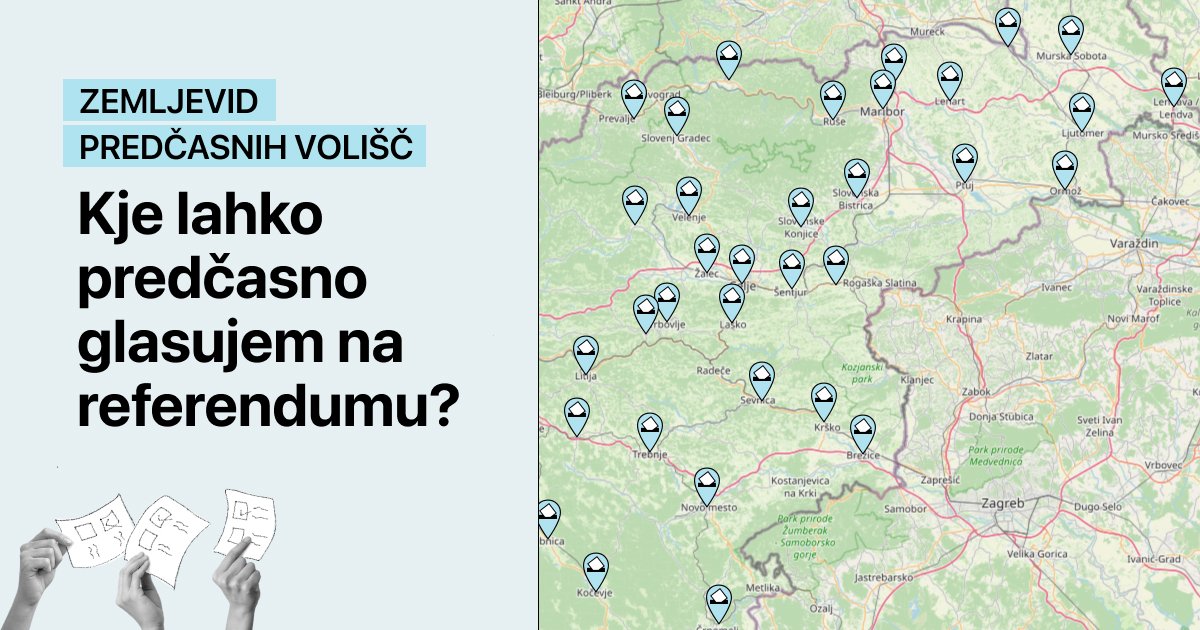
4. November 2025
For the referendum on the Voluntary End-of-Life Aid Act, we created a simple map of polling stations for early voting. The map displayed all such polling stations across Slovenia, and voters could click on the nearest one to find out more about it. The map of polling stations for early voting is one of the online tools we use to actively encourage voters to fulfil their civic duty.

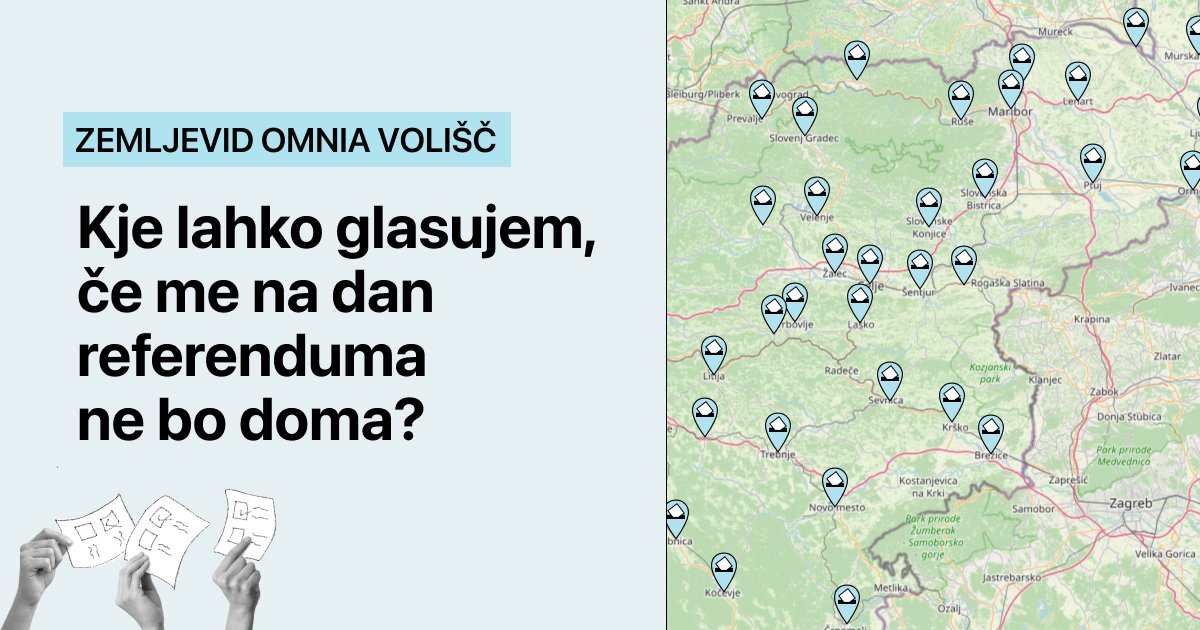
3. November 2025
OMNIA polling stations, which allow voters to cast their vote outside their home constituency on election Sunday, are organised throughout the country. To encourage participation in the referendum on the Voluntary End-of-Life Aid Act, we created a simple registration guide for this type of voting and a map to help voters find their nearest OMNIA polling station.
For our continuous independent work we need your support!!
Donate

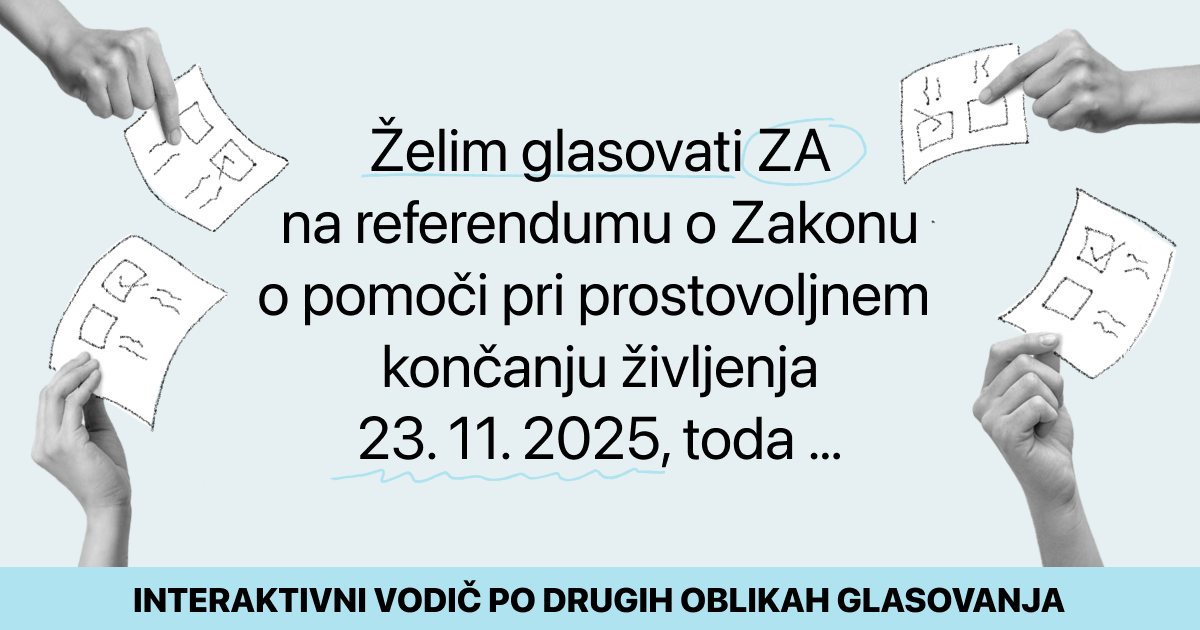
29. October 2025
As is our tradition, we prepared a guide on the different voting methods for the referendum on the Voluntary End-of-Life Aid Act, aimed at everyone who couldn't make it to the polling stations on November 23rd. The guide was designed for citizens living abroad, people with disabilities, and those who were in other parts of Slovenia on election day. In short, it was for anyone unable to vote in the standard way. We produce these election guides because we believe in the importance of political participation and actively encourage it.

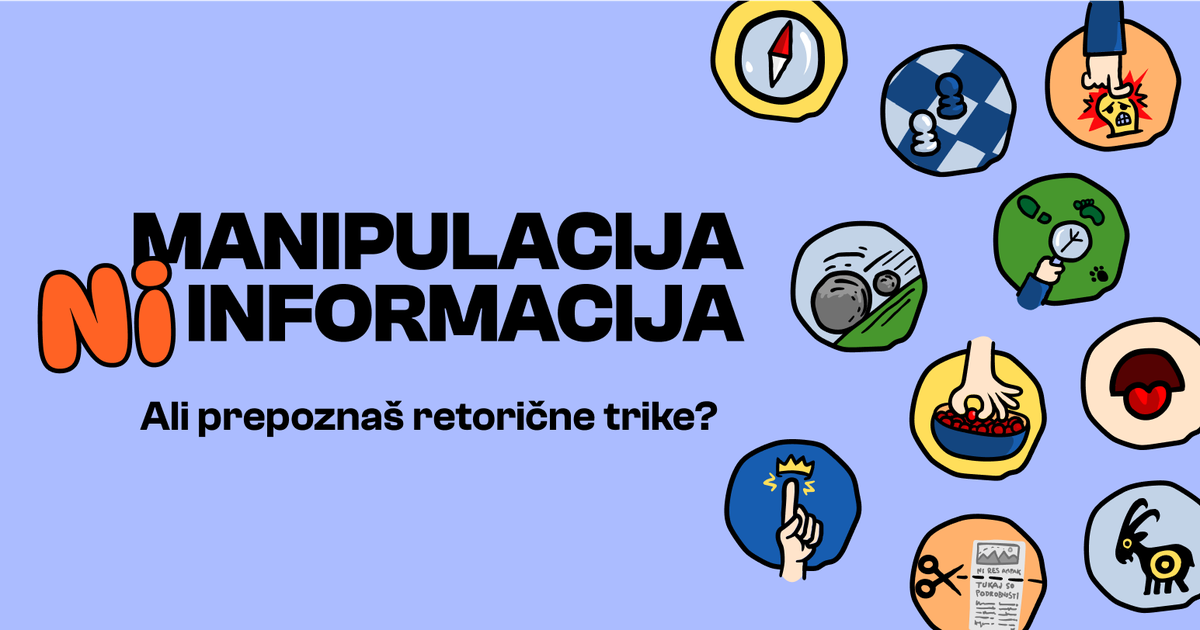
1. October 2025
The online quiz Manipulation is not information helps users identify rhetorical tricks commonly found in media and politics. Every day in October, the site features a high-profile statement, tasking visitors with identifying the manipulative technique being used. Additionally, the website serves as a guide that breaks down eleven of the most common rhetorical tricks, making it a valuable resource for anyone looking to better understand the mechanisms of persuasion and deception.

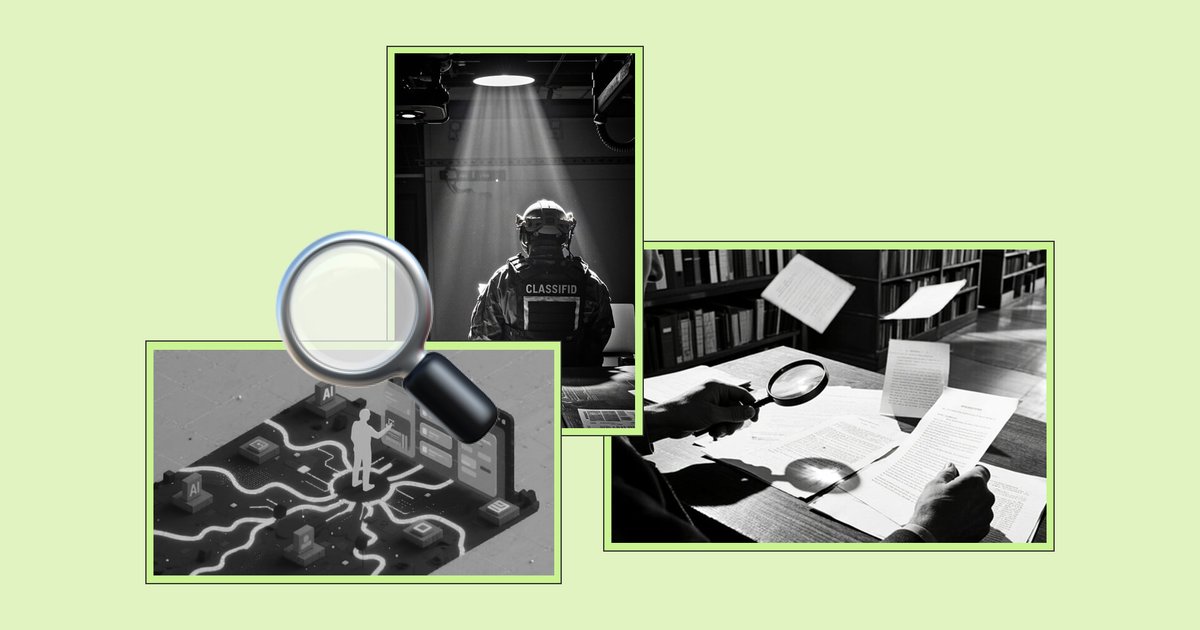
10. September 2025
In light of the exceptional progress in artificial intelligence technologies in recent years, we are seeing increasing interest in this technology among public sector employees. We therefore call on the Ministry of Digital Transformation and the Government to establish a publicly accessible register that will include key information about the AI systems used by public authorities.

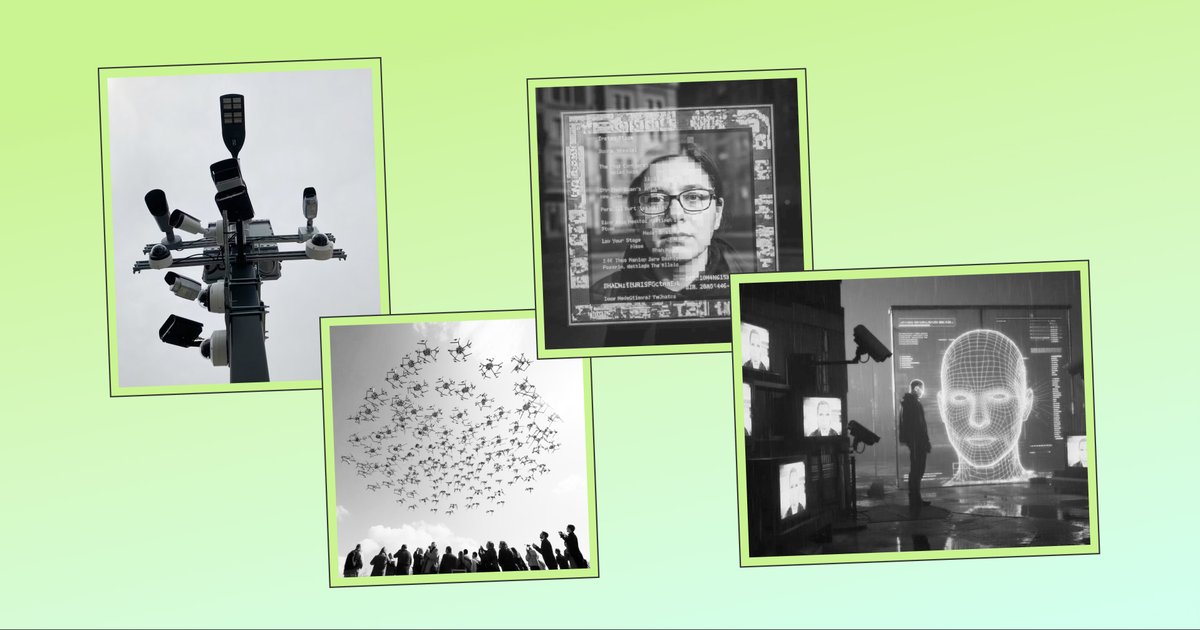
10. September 2025
As the European Artificial Intelligence Act takes effect, exceptions have been introduced that could undermine the protection of fundamental rights. That is why we prepared and addressed to decision-makers a set of recommendations aimed at preventing the weakening of democracy, democratic processes, and the rule of law.
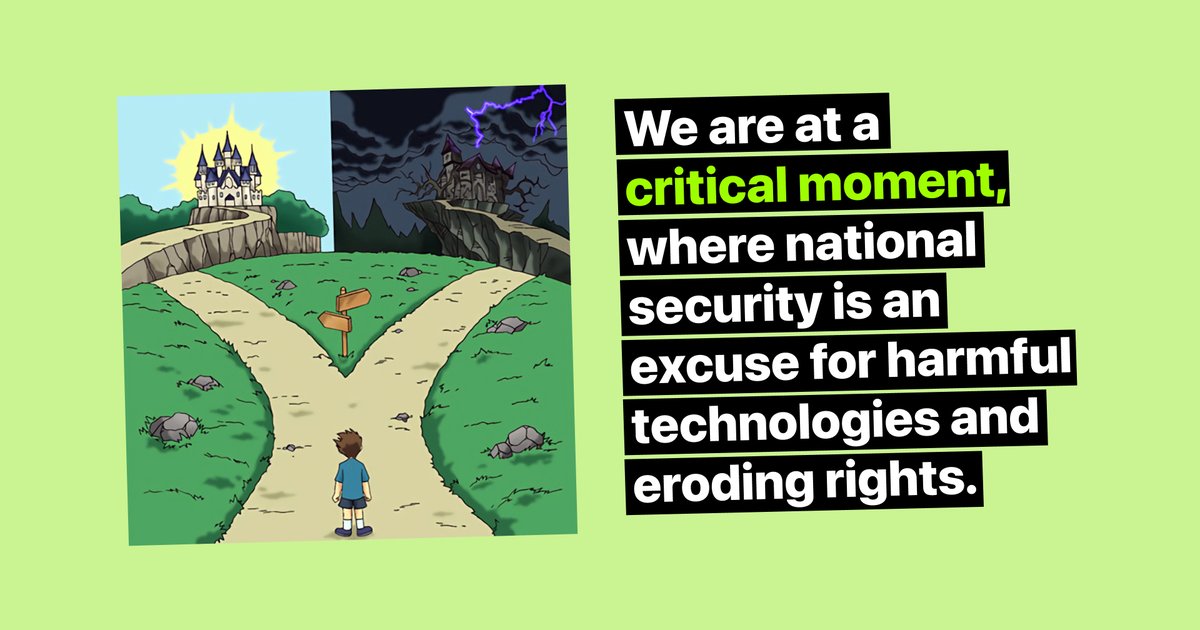
1. August 2025
It's been one year since the AI Act became EU law. Yet as its full enforcement is being prepared, the EU and some member states are already attempting to weaken its hard-won safeguards. What is at stake, and how can we defend our rights from AI-powered repression and surveillance?
In cooperation with Protect Not Surveil and the EDRi AI Act Working Group.

16. July 2025
Together with 52 civil society organisations, experts and academics we have written to the European Commission to express our concerns about growing pressure to suspend or delay the implementation and enforcement of the Artificial Intelligence (AI) Act. Instead of unraveling the EU rulebooks, the Commission should focus on the full implementation and proper enforcement of its rules.
In cooperation with EDRi.

10. July 2025
Given the abundance of information about human rights violations carried out using technological surveillance, one would find it hard to believe that anyone could write positively about this topic. And yet, in the newspaper Delo, we recently came across an editorial by Mojca Pišek titled 'Why Chinese cameras don't bother me'. In our response, we explain why cameras do not represent freedom and security, but rather repression and surveillance. This text is in Slovenian.

4. July 2025
The proposed amendment to the Prevention of Money Laundering and Terrorist Financing Act limits access to the register of beneficial owners, thereby preventing public scrutiny of financial ties between companies and those in power. This text is in Slovenian
In cooperation with the Alliance for Integrity.
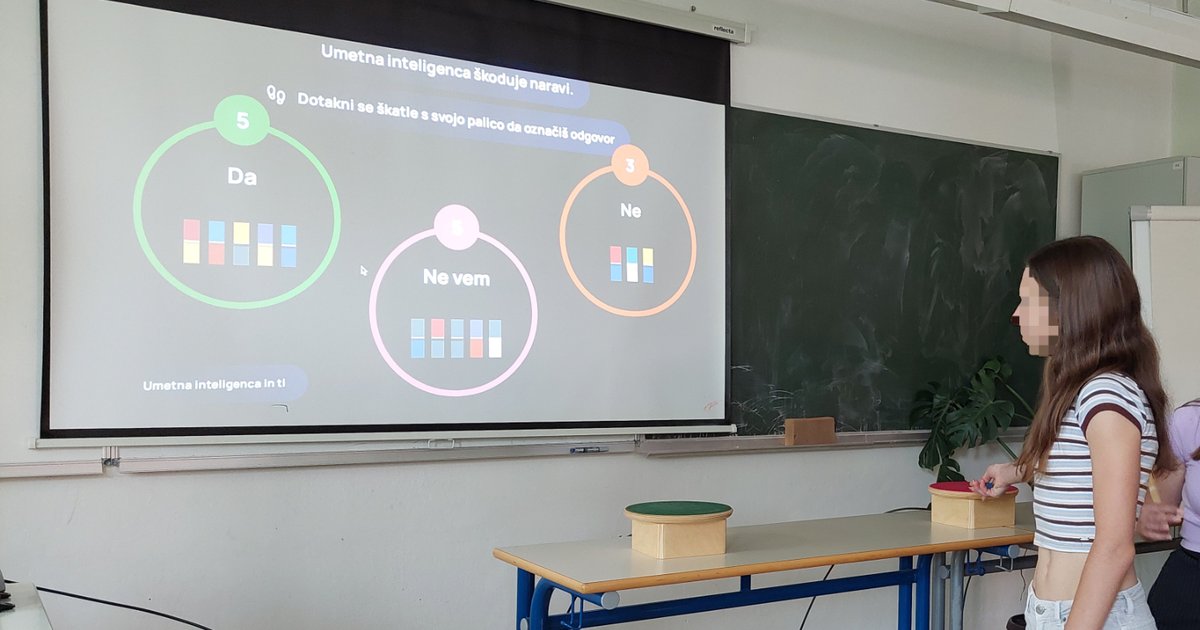
1. July 2025
We held an interactive discussion with students from The Celje Center High School on the role of AI in our society. The debate, facilitated by our Phygital tool which combines a physical experience with a digital interface, explored key questions: What does the future hold, and should we be more cautious with the development of new technologies? The students shared diverse and well-informed opinions, and the tool again proved to be an excellent way to initiate and frame debates. We are developing the tool as part of the Phygital Erasmus+ project, co-funded by the EU.
In cooperation with Tree Company, Levuur, and Dypall.
